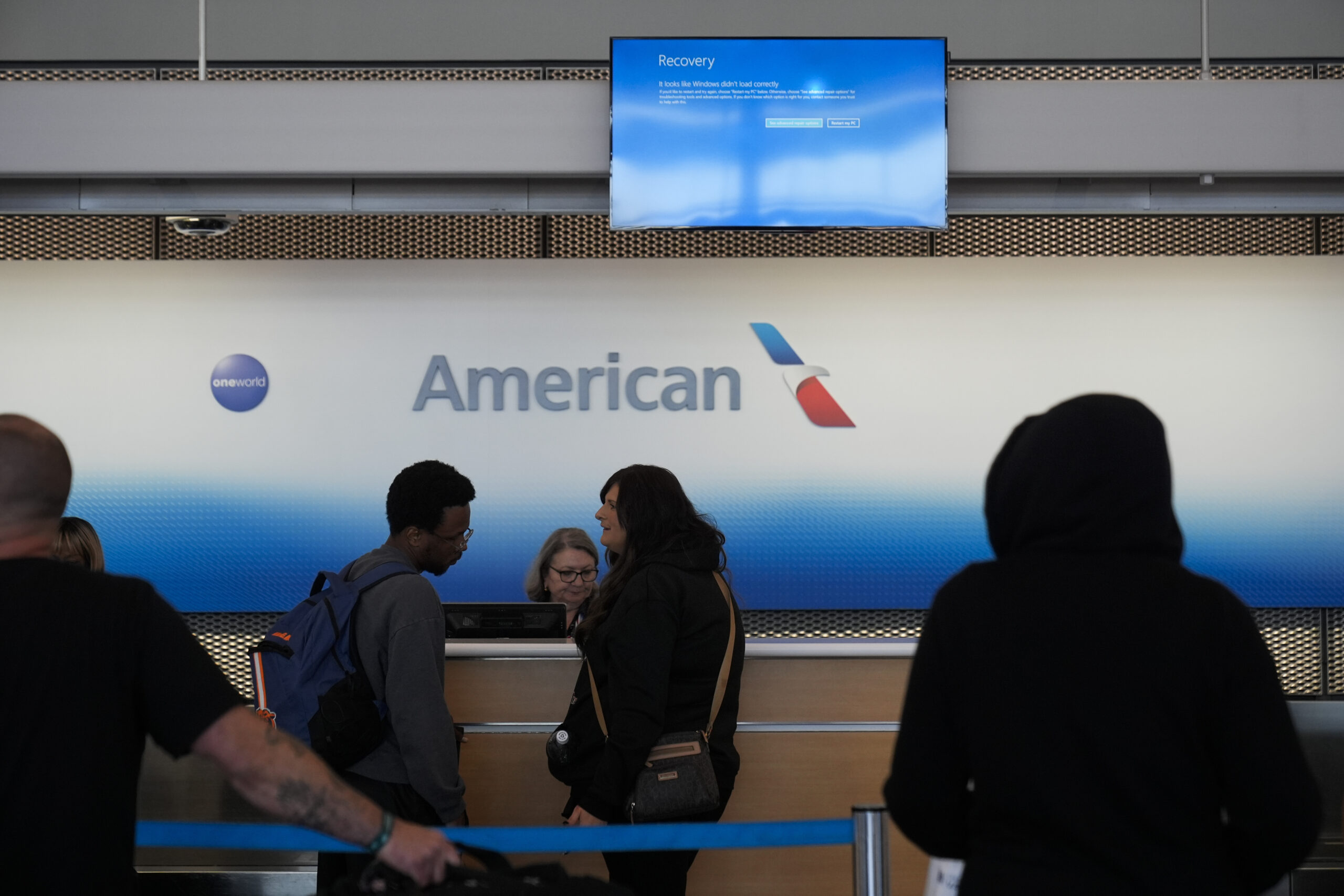Last Friday morning, computers around the world opened up to an error screen that Microsoft users call the “blue screen of death.”
The system crash was due to a faulty software update from a cybersecurity company called CrowdStrike. Thousands of organizations use CrowdStrike’s services, including some U.S. government agencies.
The error created a widespread tech outage that affected local municipalities, health care systems, airports, and businesses across the globe, including in Wisconsin.
News with a little more humanity
WPR’s “Wisconsin Today” newsletter keeps you connected to the state you love without feeling overwhelmed. No paywall. No agenda. No corporate filter.
Hospitals and health clinics around the state had to reschedule or delay some procedures.
“We are continuing to closely monitor the global CrowdStrike outage and remain focused on minimizing disruption to our patients,” Aurora Health Care said in a written statement on Friday afternoon. By Saturday morning, Aurora had resumed normal operations.
In some areas of the state, municipal workers were locked out of their computers. Outagamie County officials released a statement on Friday morning announcing that public services were “extremely limited” for the day. “If possible, we ask anyone needing county services to wait until next week,” they said.
Around the world, flights were significantly delayed or canceled. Some attendees of last week’s Republican National Convention found themselves stranded at Milwaukee Mitchell International Airport on Friday.

While the outage caused the most disruption on Friday, the ripple effects were felt through the weekend as IT departments everywhere scrambled to get computer systems back up and running.
That’s because it wasn’t just individual computers that were affected by the outage, according to Keatron Evans, a cybersecurity researcher at the Wisconsin-based company Infosec.
“It’s not just the end users — it’s the infrastructure, like the servers that hold all the data that a lot of us are using,” he explained on WPR’s “Wisconsin Today.”
“When those devices are shut down, it (has a) multitude of effects,” he said.
The impact of this outage was especially pronounced because it affected Windows operating systems, which are used by more than 70 percent of servers worldwide.
Some technology experts have said that Microsoft’s outsize market share is cause for concern, as it opens up the door for more widespread malfunctions like this in the future.
For Evans, the risks of a single point of failure are likely outweighed by the benefits of having a standardized system that many people are comfortable working in.
“I don’t know if we could regulate our way out of this,” Evans said.
Instead, he said, organizations should expect that system crashes will happen from time to time and have a quick recovery plan in place.
That can include having a redundant operating system as a backup, diversifying the cybersecurity solutions that are in place, and having alternative ways to carry out business in case of emergency.
Friday’s outage is being called “the largest IT outage in history,” and for many it was a wake-up call to be ready for future system failures.
“I don’t think this is a one-off thing. Essentially, it could have happened to any company that has privileged access to your Windows operating system that’s allowed to push out updates,” Evans said. “So I don’t think we’ve seen the absolute last time that something like this is gonna happen.”
Editor’s note: This article was updated to note that Aurora resumed normal operations on Saturday, July 20.
Wisconsin Public Radio, © Copyright 2025, Board of Regents of the University of Wisconsin System and Wisconsin Educational Communications Board.







